May 24, 2025 | 16:25 GMT +7
May 24, 2025 | 16:25 GMT +7
Hotline: 0913.378.918
May 24, 2025 | 16:25 GMT +7
Hotline: 0913.378.918
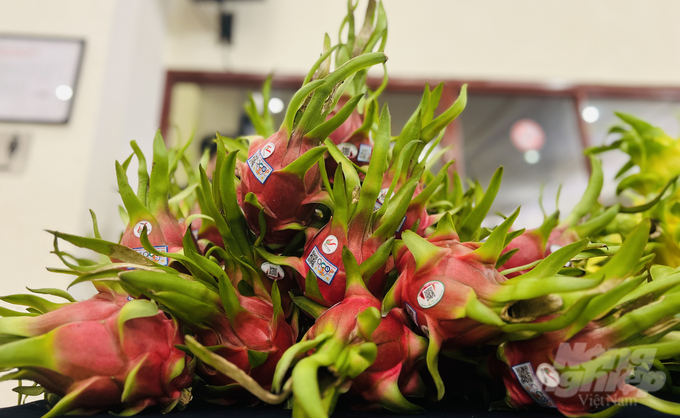
Dragon fruit can be deeply processed into a variety of products, but this potential has not been exploited effectively at present. Photo: Nguyen Thuy.
As one of the production units having a closed system, exporting fresh dragon fruit and processing many dragon fruit products, Hoa Le Clean Dragon Fruit Cooperative (Ma Lam town, Ham Thuan Bac district, Binh Thuan province) has 10 ha of dragon fruit grown according to GlobalGAP standards, 25 ha grown according to VietGAP standards. The cooperative also has a consumption linkage summing up to 100 ha of GlobalGAP and VietGAP dragon fruit with cooperatives and farmer households in districts in Binh Thuan.
According to Do Tan Hiep, Director of Hoa Le Clean Dragon Fruit Cooperative, in order to increase the value of dragon fruit, the cooperative makes full use of dragon fruit flowers, fruits, seeds, and peels, processes products that bring high economic value, thus increasing income for people. Many of the cooperative's dragon fruit products achieve 3-star, 4-star OCOP and are recognized as “typical rural agro-products”.

Energy pills made of dragon fruit seeds and peels. Photo: Nguyen Thuy.
With its strengths in processing technology, Phuc Ha Co., Ltd. (Hai Ninh commune, Bac Binh district, Binh Thuan) has researched many products from dragon fruit such as fermented juice, daily energy pills, care oil products for gentlemen to regenerate skin, dragon fruit soy sauce, nutritious dragon fruit seeds for children, and dragon fruit powder. Particularly in 2022, the company’s dragon fruit powder and dragon fruit seeds have registered for exclusive patents in Vietnam and the USA.
"Many foreign businesses have contacted us to sign contracts, however, we are calling for investment capital and wish to cooperate with large businesses. Our goal is to build a factory to process dragon fruit products that meet international standards. Products from dragon fruit are full of potential, and only deep processing can help the dragon fruit industry develop sustainably and go further," said Le Thi Nguyen Ha, Director of Phuc Ha Co., Ltd.
Binh Thuan is one of the places with the largest dragon fruit growing area in Vietnam, plus advantages in soil and climate for dragon fruit development. Facing the increasing demands, Binh Thuan Sustainable Production and Consumption Ecosystem Cooperative was born.
“We should not depend on the Chinese market and instead have our own vision and mission. We must join hands to build a connection procedure between entities in the dragon fruit production value chain. The creation of that ecosystem will help build a sustainable production process and satisfy clean standards so that clean dragon fruit can reach Vietnamese consumers as well as consumers worldwide,” said Nguyen Hoang Van, General Director of Binh Thuan Sustainable Production and Consumption Ecosystem Cooperative.
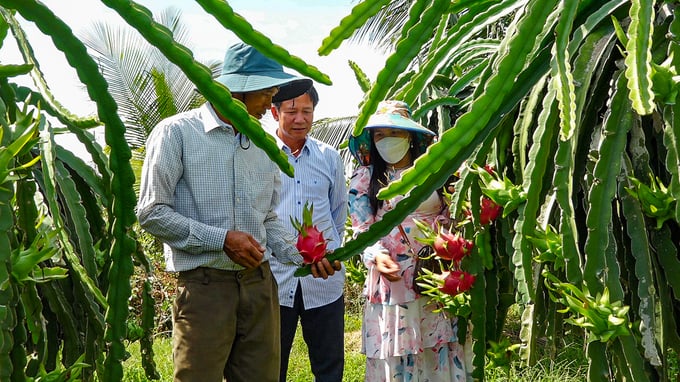
Vietnam needs to build its own ecosystem for dragon fruit to maximize its existing potential. Photo: TL.
The cooperative is focusing on bringing fresh dragon fruit to the domestic market first. Resorts of Mui Ne, Phan Thiet or any motel and hotel in Binh Thuan have a corner to introduce dragon fruit to visitors, showing what makes Binh Thuan dragon fruit different from other dragon fruits of other provinces.
According to Tran Thanh Binh, Head of the Department of Import-Export of Agricultural, Forestry and Fishery Products (Ministry of Industry and Trade), besides difficulties and challenges, Vietnamese dragon fruit also has many opportunities.
Vietnam has actively participated in many FTAs, not to mention it has good quality agro-products, large production scale, and high competitiveness, which prove to be big advantages compared to other countries. For example, China's main dragon fruit harvest is from April to September, so Vietnam can switch to growing dragon fruit off-season to meet market demand.
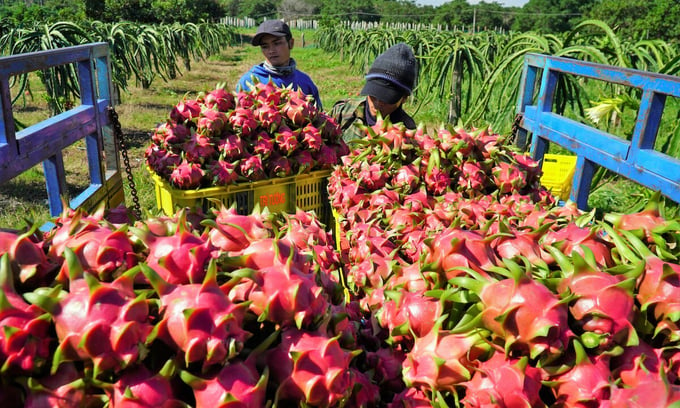
Being too dependent on the Chinese market causes Vietnam’s dragon fruit industry to face many consequences. Photo: TL.
Regarding the domestic market, Tran Thanh Binh believes it is a highly potential market that businesses should pay more attention to. “Companies need to come up with policy mechanisms in conjunction with associations, retailers, and distribution systems to bring dragon fruit products to consumers, while also focusing more on marketing. It encourages domestic consumers to love and trust dragon fruit products made in Vietnam”.
Translated by Samuel Pham
/2025/05/22/5250-1-184853_288.jpg)
(VAN) According to a representative from the Central Retail Vietnam, Vietnamese products such as seafood, sweet potatoes, dragon fruit, coffee, and spices hold great potential in the Thai market.
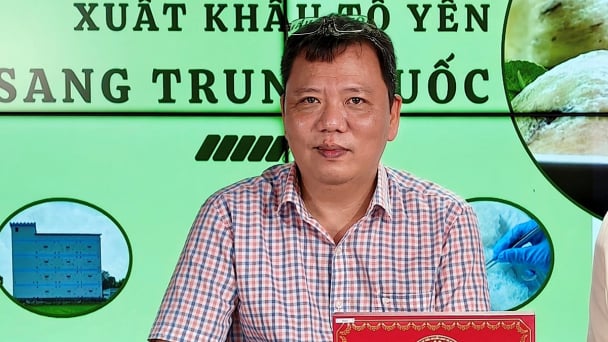
(VAN) A multi-channel, multi-directional strategy only works when the agricultural value chain meets global transparency and SPS standards.
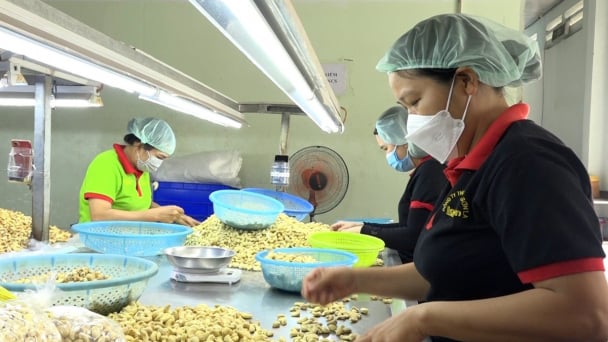
(VAN) Market expansion is a matter of survival for Vietnamese businesses amid fierce competition and global supply chain fluctuations.
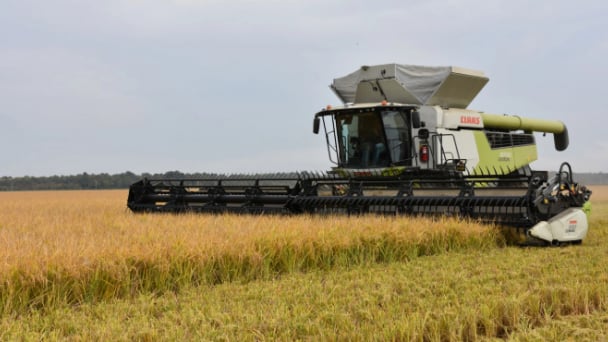
(VAN) Global market prospects for U.S. long-grain rice for the upcoming marketing year.
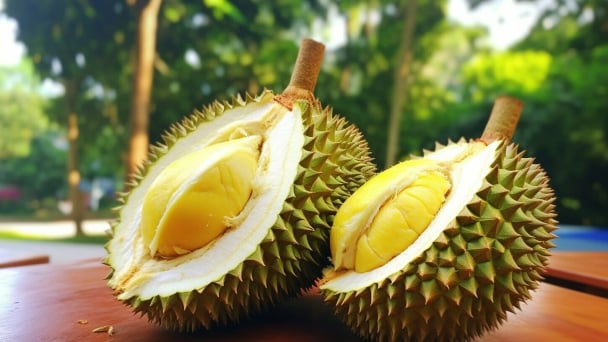
(VAN) China’s General Administration of Customs started permitting fresh durian shipments from Cambodia after a phytosanitary protocol was signed with the Cambodian Ministry of Agriculture in late April.
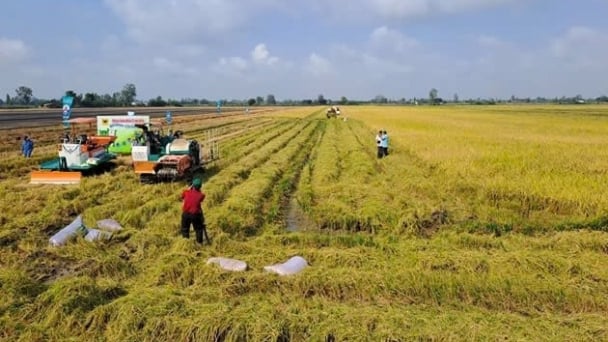
(VAN) To operate carbon market, one of the key issues is determining which types of 'commodities' meet the standards to be traded on the market.
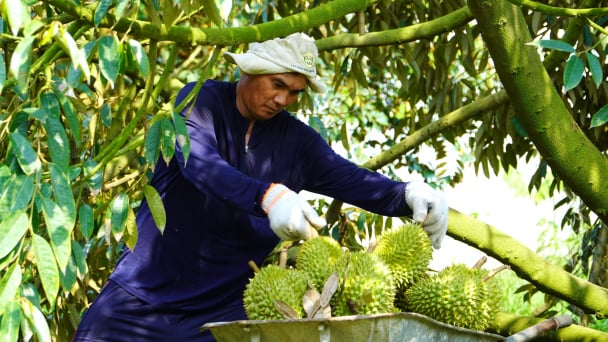
(VAN) Durian-producing localities need to coordinate more effectively with central authorities to improve the traceability, monitoring, and response systems in case of violations.